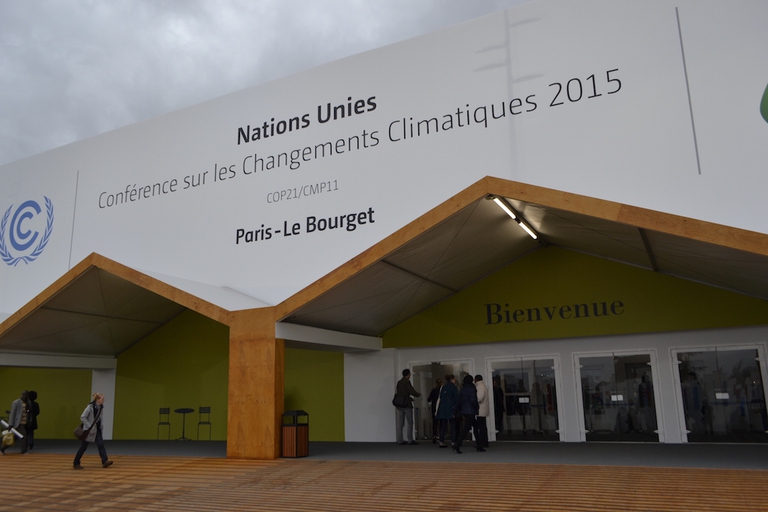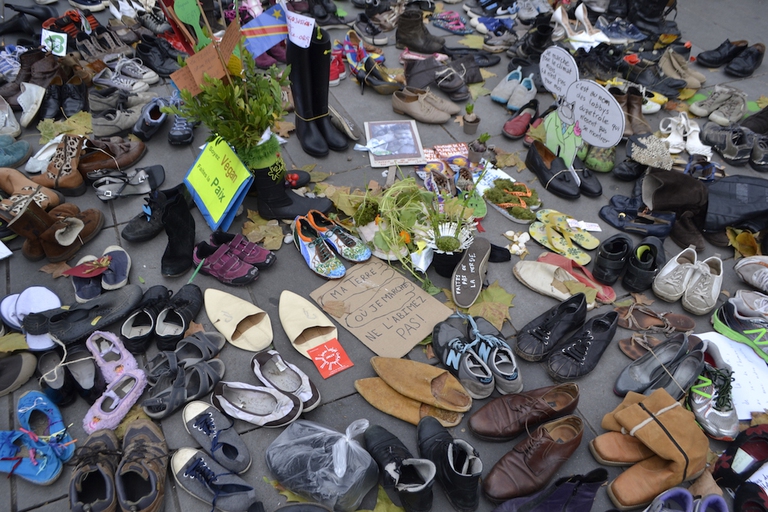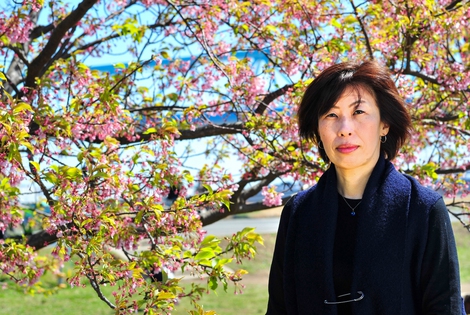
Three people putting the protection of the planet before themselves. Three powerful stories from Latin America, the deadliest region for environmental activists.
Atmosfera tesa a Parigi alla vigilia della Cop 21: la polizia ha reagito ad una manifestazione non autorizzata in place de la République. Decine di arresti.
The United Nations climate change conference, COP21, has officially begun on 30 November, with the interventions of the heads of state. However, earlier on Sunday, the delegations of the 196 participating countries have met in plenary, which practically represented the moment when negotiations started.
French Foreign Minister Laurent Fabius has appealed to all the representatives of states: “During the Durban conference we pledge to reach a binding agreement to limit the average global temperature rise to 2°C by the end of the century. To do so, a strong political push is needed: this is what I ask to the 150 heads of state participating to the conference”.
Delegates have 2 weeks to secure a deal. The event will be held in Le Bourget, a huge space north to Paris home to hundreds of pavilions and tens of rooms for meetings, plenary sessions, and press conferences. There’s also an area, called “Climate Generation”, entirely dedicated to non-governmental organisations. All around, security forces and controls. The entire site, from Saturday, is not under French jurisdiction: the event is directly managed by the United Nations.
The atmosphere is anything but relaxed. In the aftermath of the terror attacks of 13 November, the French government has declared a national state of emergency. On the eve of COP21, 24 environmental activists have been given the obligation to reside outside Paris: they have to go to the police station three times a day and they’re not allowed to go out at night until 12 December (the day after the UN conference’s end). According to Reporterre, reference French news agency for environmentalist information, the young men (27-30 years old) “have been treated like terrorists”. Their lawyer talked about a “violation of their freedom to demonstrate”. Moreover, the Secretary of the Europe Ecologie Les Vertes party, Emmannuelle Cosse, said it is unacceptable that ecologists become the target.
The French capital was characterised by tension on Sunday afternoon: some thousands of activists didn’t respect the ban on protest marches imposed by the government. Place de la République, which should have been the location of the Global March for Climate, has been filled up with hundreds of shoes, even from Pope Francis. It was a way to say “We are here anyway”.
Some hours later, tens of people joined the peace demonstrators, trying to force police blocks, which surrounded the area. The situation ended up in clashes: almost 300 people have been arrested.
Alongside the Global March, hundreds of events have been cancelled in Paris. The civil society has been thus forced to reorganise its mobilisation. Associations’ first goal is to become the “whistle-blowers” of COP21: “We will speak for the world’s most vulnerable populations, to make their voices heard. We will attend every meeting: anytime negotiations undergo a setback, we will try to propose solutions. If it is not enough, we will make it public,” said Célia Gautier, French representative of the Réseau Action Climat (international network made of over 700 ecologist NGOs). Therefore, NGOs representatives will meet every morning to elect the “Fossils of the Day”, i.e. three countries performing bad as for the climate.
Siamo anche su WhatsApp. Segui il canale ufficiale LifeGate per restare aggiornata, aggiornato sulle ultime notizie e sulle nostre attività.
![]()
Quest'opera è distribuita con Licenza Creative Commons Attribuzione - Non commerciale - Non opere derivate 4.0 Internazionale.
Three people putting the protection of the planet before themselves. Three powerful stories from Latin America, the deadliest region for environmental activists.
Influential scientist, activist and author Vandana Shiva fights to protect biological and cultural diversity, and against GMOs.
Kimiko Hirata has blocked 13 new coal plants in Japan, but she hasn’t done it alone. The 2021 Goldman Prize winner tells us about her movement.
The Goldman Environmental Prize, the “green Nobel Prize”, is awarded annually to extraordinary activists fighting for the well-being of the planet.
We talk to Shaama Sandooyea, activist and marine biologist from Mauritius onboard Greenpeace’s Arctic Sunrise ship in the heart of the Indian Ocean.
Arrested for supporting farmers. The alarming detention of Disha Ravi, a 22-year-old Indian activist at the fore of the Fridays for Future movement.
Water defender Eugene Simonov’s mission is to protect rivers and their biodiversity along the borders of Russia, China and Mongolia.
Chibeze Ezekiel, winner of the 2020 Goldman Environmental Prize for Africa, is fighting to guide new generations towards a renewable future.
Leydy Pech, winner of the 2020 Goldman Environmental Prize for North America, is the beekeeper who defended Mexican Maya land against the agro-industry.









